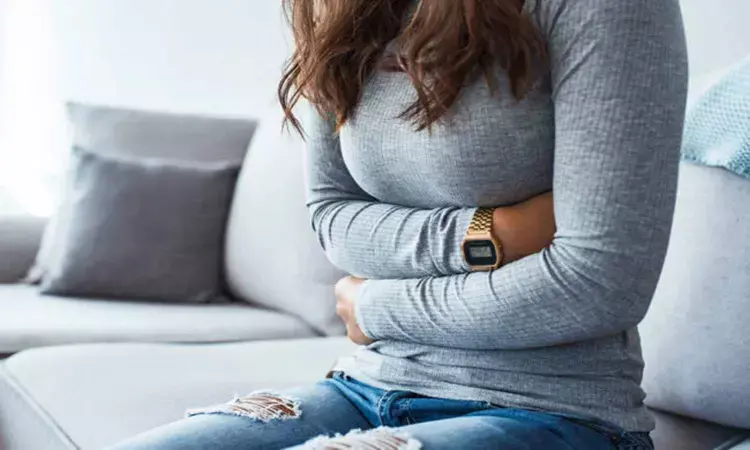- Home
- Medical news & Guidelines
- Anesthesiology
- Cardiology and CTVS
- Critical Care
- Dentistry
- Dermatology
- Diabetes and Endocrinology
- ENT
- Gastroenterology
- Medicine
- Nephrology
- Neurology
- Obstretics-Gynaecology
- Oncology
- Ophthalmology
- Orthopaedics
- Pediatrics-Neonatology
- Psychiatry
- Pulmonology
- Radiology
- Surgery
- Urology
- Laboratory Medicine
- Diet
- Nursing
- Paramedical
- Physiotherapy
- Health news
- Fact Check
- Bone Health Fact Check
- Brain Health Fact Check
- Cancer Related Fact Check
- Child Care Fact Check
- Dental and oral health fact check
- Diabetes and metabolic health fact check
- Diet and Nutrition Fact Check
- Eye and ENT Care Fact Check
- Fitness fact check
- Gut health fact check
- Heart health fact check
- Kidney health fact check
- Medical education fact check
- Men's health fact check
- Respiratory fact check
- Skin and hair care fact check
- Vaccine and Immunization fact check
- Women's health fact check
- AYUSH
- State News
- Andaman and Nicobar Islands
- Andhra Pradesh
- Arunachal Pradesh
- Assam
- Bihar
- Chandigarh
- Chattisgarh
- Dadra and Nagar Haveli
- Daman and Diu
- Delhi
- Goa
- Gujarat
- Haryana
- Himachal Pradesh
- Jammu & Kashmir
- Jharkhand
- Karnataka
- Kerala
- Ladakh
- Lakshadweep
- Madhya Pradesh
- Maharashtra
- Manipur
- Meghalaya
- Mizoram
- Nagaland
- Odisha
- Puducherry
- Punjab
- Rajasthan
- Sikkim
- Tamil Nadu
- Telangana
- Tripura
- Uttar Pradesh
- Uttrakhand
- West Bengal
- Medical Education
- Industry
IUDs successfully manage menstrual pain in adolescents with disabilities

PHILADELPHIA -- Studies have shown that intrauterine devices (IUDs) that release progestins can help adult women with heavy menstrual bleeding, discomfort, and cramping, in addition to providing contraception. However, there are little data on whether they reduce these symptoms in younger women and adolescents, especially those with physical or intellectual disabilities.
New research from the largest dataset studied to date, demonstrates that IUDs are an effective means of stopping periods or managing symptoms associated with periods in adolescents with disabilities.
"Young women with complex medical conditions, including physical, intellectual, and developmental disabilities, are often interested in menstrual management or suppression for many reasons," says Beth Schwartz, MD, Director of Pediatric and Adolescent Gynecology at Thomas Jefferson University and Nemours Children's Health System and Assistant Professor of Obstetrics & Gynecology and Pediatrics at Sidney Kimmel Medical College at Thomas Jefferson University. "This study describes how safe and effective this option is for young women and their families."
The results were reported in the journal Pediatrics, July 23rd, 2020.
For young women with intellectual or developmental disabilities, puberty and the onset of a menstrual cycle can be alarming and difficult to understand. "Many families seek support for this difficult transition," says Dr. Schwartz. "IUDs don't always come to mind for many pediatric providers. This data shows physicians that this treatment option can be immensely helpful and improve a young woman's quality of life."
Dr. Schwartz and colleagues at Cincinnati Children's Hospital Medical Center performed a retrospective chart review of all IUDs placed there over a 10-year period. The analysis included women ages 22 and under who had never had a baby, and who had a physical, intellectual or developmental disability. The study ultimately included 159 patients with disabilities in the analysis, whose mean age was 16 (range of 9-22 years) at IUD placement.
The results showed that 65% of young women and adolescents reported less bleeding one year after IUD placement, and only 7% had worsened bleeding. As many as 59% had no bleeding with the IUD placement, which is very high compared to the general population and to other menstrual management methods.
The researchers also found that 95% of women in the study kept their IUD after 1 year, and an estimated 73% still had it at 5 years, which is an indication of satisfaction with the treatment. "These rates are much higher than those reported in studies with adult women without disabilities and compared to other methods of contraception," says Dr. Schwartz. The side effects reported were also rare, at 5% or less.
"Women with disabilities and their families request help managing menarche for reasons of hygiene, mood issues, exacerbation of other medical issues, abnormal bleeding and pregnancy prevention," says Dr. Schwartz. "We hope this data will help reassure physicians that this is a viable option."
In a separate study, Dr. Schwartz also examined the use of IUDs in an adolescent population without disabilities but who were using them primarily for medical reasons, such as heavy bleeding or menstrual pain. In this group, which included 219 adolescents and young women, 80% reported reductions in volume of menstrual bleeding, and 76% reported reductions in pain. "These benefits are similar to what we see in the adult population," says Dr. Schwartz, "and suggest that IUDs could be a helpful tool in managing menstrual symptoms for young women whose lives are disrupted or negatively impacted by difficult cycles. These methods should not be reserved for adult women or only for birth control. In fact, the majority of patients in both studies had never been sexually active."
Hina Zahid Joined Medical Dialogue in 2017 with a passion to work as a Reporter. She coordinates with various national and international journals and association and covers all the stories related to Medical guidelines, Medical Journals, rare medical surgeries as well as all the updates in the medical field. Email: editorial@medicaldialogues.in. Contact no. 011-43720751
Dr Kamal Kant Kohli-MBBS, DTCD- a chest specialist with more than 30 years of practice and a flair for writing clinical articles, Dr Kamal Kant Kohli joined Medical Dialogues as a Chief Editor of Medical News. Besides writing articles, as an editor, he proofreads and verifies all the medical content published on Medical Dialogues including those coming from journals, studies,medical conferences,guidelines etc. Email: drkohli@medicaldialogues.in. Contact no. 011-43720751


